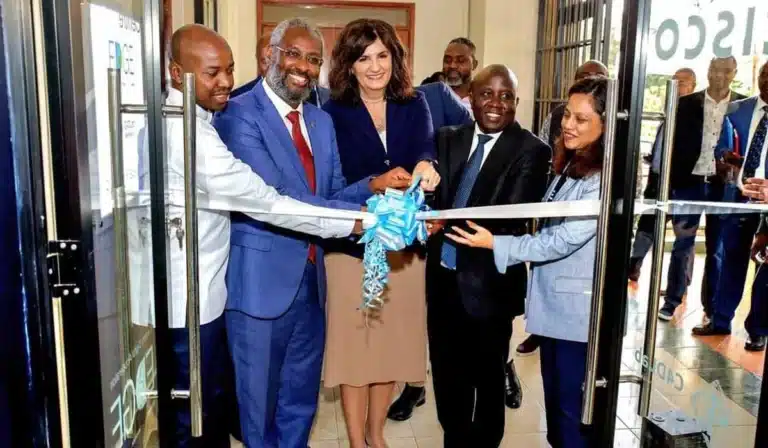Summary:
- Locally assembled smartphones which were initially launched at affordable prices have seen significant price increases, hindering accessibility.
- High prices are limiting access to low-income earners, contrary to the intended goal of improving digital access.
- Efforts to reduce import taxes are advocated to enhance market growth and connectivity.
Promise of cheaper devices with local factory launch
In October last year, President William Ruto inaugurated a factory for locally assembled smartphones which marked a significant step towards enhancing digital access in Kenya. The hopes were off the roof, with anticipation of job creation, cheaper devices that would eventually skyrocket Kenya’s efforts to digital inclusivity. However, a recent study suggests a concerning trend as the prices of these locally assembled phones soar, potentially impeding the nation’s digital access goals.
Smartphones have always had a relatively high price tag for the common Kenyan, with most citizens choosing to remain on the so-called feature phones. This has had a major impact on the countries move towards a digitally inclusive society, with some sectors such as service delivery being impacted most. The prices of these smartphones have surged since they were unveiled, with current retail prices reaching as high as Sh10,559 and expected to rise further to Sh11,500. This stark escalation from their initial prices of Sh7,499 for the Safaricom’s Neon Smart and Sh8,999 for the Neon Ultra has raised eyebrows among consumers and industry experts alike.
Study on locally assembled devices.
A study conducted by the Centre for International Private Enterprise (Cipe) and Kenya Private Sector Alliance (Kepsa) attributes the price hikes to a combination of factors that among others include taxes as well as currency fluctuations. Despite promises of affordability, the reality reflects a different narrative, with the cost of these devices exceeding expectations.
The implications of these inflated prices extend beyond mere consumer dissatisfaction. They pose a significant barrier to digital inclusion, especially for low-income earners who constitute the primary target demographic for these devices. Accessibility to essential digital services and e-commerce opportunities is compromised, undermining the government’s efforts to foster digital economic transformation. Recently we highlighted the need to purchase smartphones outright rather than using the Lipa Pole Pole scheme’s that end up becoming even more expensive than buying outright.
Other Initiatives
Despite attempts like the Finance Act of 2023 which wanted to decrease taxes on telecommunication services, import duties and Value Added Tax (VAT), still prices of locally assembled smartphones are going up. The marketplace chance is not being used completely and this affects both small businesses growth as well as overall connectivity.
It is clear that handling these obstacles needs a clear plan, with focus on making things inexpensive and affordable. The push for lower import duties has come up as a key element to boost market need and enhance connectivity. By cultivating conditions suitable for invention and rivalry, Kenya can use the complete capacity of its digital economy to push sustainable development forward.
When we look at how the government is doing in making a digital society, the study explains that it’s very important to deal with main difficulties. These include not having enough skills for using digital technology, high costs of internet and worries about cybersecurity. Working together among government departments, people from private sector and those who are part of civil society groups has become crucial to overcome these problems and make sure everyone can take part in this digital revolution.
Kenya, in its quest to become a frontrunner for digital innovation in the region, must manage the problems that come with increasing smartphone costs. The country can make a significant impact by focusing on affordability and availability which will open up fresh opportunities for economic development and give its people power to succeed during this era of technology.

